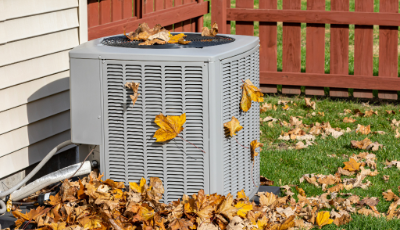Preparing Your Bay Area HVAC System for Seasonal Changes
Understanding the Impact of Seasonal Changes on Your HVAC System
The Bay Area experiences distinct seasonal changes throughout the year, with hot summers and chilly winters. These changes can have a significant impact on your HVAC system’s performance and efficiency. Understanding how seasonal changes affect your HVAC system is crucial for maintaining its optimal functionality.
During the summer months, when temperatures soar, your HVAC system works hard to keep your home cool and comfortable. The increased demand on the system can lead to wear and tear, potentially causing breakdowns or reduced efficiency. On the other hand, during the winter, your HVAC system is responsible for heating your home, which can also put a strain on its components.
Essential Maintenance Tasks to Prepare Your HVAC System for the Upcoming Season
To ensure your HVAC system is ready for the upcoming season, there are several essential maintenance tasks you should undertake. First and foremost, it is crucial to schedule a professional HVAC inspection and tune-up. A trained technician will thoroughly inspect your system, clean the components, and identify any potential issues that need to be addressed.
Additionally, it is important to regularly change your HVAC system’s air filters. Clogged or dirty filters can restrict airflow, reducing the system’s efficiency and increasing energy consumption. By replacing the filters every one to three months, depending on usage, you can improve indoor air quality and prevent unnecessary strain on your HVAC system.
Another crucial maintenance task is to clean the outdoor unit of your HVAC system. Over time, debris such as leaves, dirt, and grass clippings can accumulate around the unit, obstructing airflow and reducing its efficiency. By clearing away any debris and ensuring proper airflow, you can help your HVAC system operate at its best.
Tips for Optimizing Your HVAC System’s Efficiency during Seasonal Transitions
Optimizing your HVAC system’s efficiency during seasonal transitions is essential for reducing energy consumption and maximizing comfort. One effective tip is to adjust your thermostat settings according to the season. During the summer, set your thermostat to a higher temperature when you’re away from home to reduce unnecessary cooling. In the winter, lower the temperature when you’re not at home to save on heating costs.
Another way to optimize efficiency is by utilizing natural ventilation. During mild weather, open windows and doors to allow fresh air to circulate, reducing the need for your HVAC system to work as hard. Additionally, using ceiling fans can help distribute cool or warm air more effectively, allowing you to set your thermostat at a slightly higher or lower temperature without sacrificing comfort.
Regularly maintaining your HVAC system’s ductwork is also crucial for optimizing efficiency. Leaky or poorly insulated ducts can result in significant energy loss. By sealing any leaks and insulating the ducts, you can prevent air leakage and ensure that conditioned air reaches its intended destination, reducing energy waste.
Common HVAC Problems to Watch Out for During Seasonal Changes
Seasonal changes can also bring about common HVAC problems that homeowners should be aware of. One common issue is refrigerant leaks. During the summer, the increased workload on your HVAC system can cause leaks in the refrigerant lines. If you notice a decrease in cooling performance or hissing sounds near the unit, it is essential to have a professional technician inspect and repair any leaks promptly.
Another problem to watch out for is thermostat malfunctions. Fluctuating temperatures or an unresponsive thermostat can indicate a faulty unit. It is crucial to address these issues promptly to ensure your HVAC system operates efficiently and maintains a comfortable indoor environment.
Clogged condensate drains are another common problem during seasonal changes. As your HVAC system removes humidity from the air, condensation collects in the drain pan and is drained away. However, if the drain becomes clogged with debris, it can lead to water leaks and potential water damage. Regularly inspecting and cleaning the condensate drain can prevent this issue.
In conclusion, understanding the impact of seasonal changes on your Bay Area HVAC system is crucial for its optimal performance and efficiency. By undertaking essential maintenance tasks, such as scheduling professional inspections, changing air filters, and cleaning the outdoor unit, you can ensure your system is prepared for the upcoming season. Additionally, optimizing efficiency through thermostat adjustments, natural ventilation, and ductwork maintenance can help reduce energy consumption. Lastly, being aware of common HVAC problems, such as refrigerant leaks, thermostat malfunctions, and clogged condensate drains, allows you to address these issues promptly and prevent further damage. By taking these steps, you can enjoy a comfortable and energy-efficient home throughout the year.


